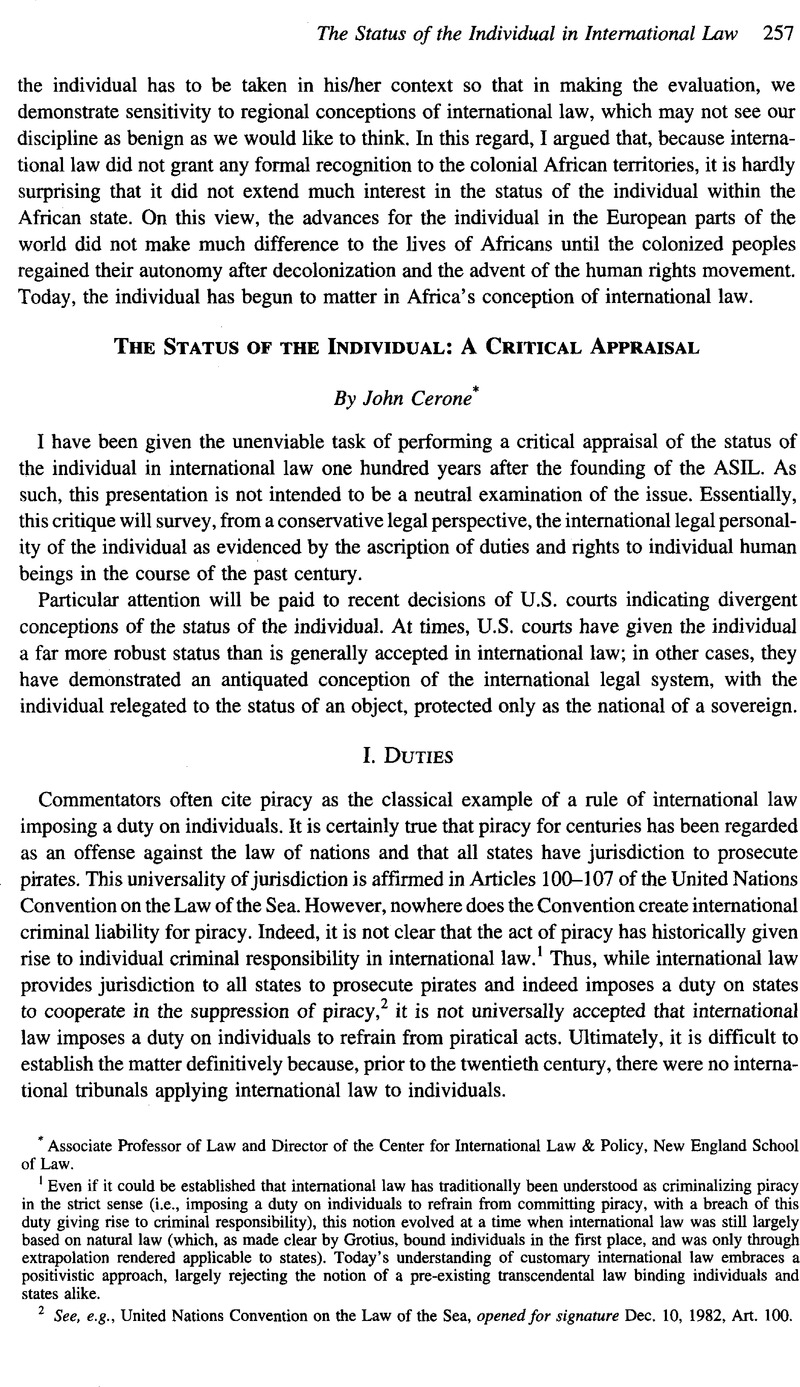Article contents
The Status of the Individual: A Critical Appraisal
Published online by Cambridge University Press: 28 February 2017
Abstract

- Type
- The Status of the Individual in International Law
- Information
- Copyright
- Copyright © American Society of International Law 2006
References
1 Even if it could be established that international law has traditionally been understood as criminalizing piracy in the strict sense (i.e., imposing a duty on individuals to refrain from committing piracy, with a breach of this duty giving rise to criminal responsibility), this notion evolved at a time when international law was still largely based on natural law (which, as made clear by Grotius, bound individuals in the first place, and was only through extrapolation rendered applicable to states). Today’s understanding of customary international law embraces a positivistic approach, largely rejecting the notion of a pre-existing transcendental law binding individuals and states alike.
2 See, e.g., United Nations Convention on the Law of the Sea, opened for signature Dec. 10, 1982, Art. 100.
3 Thus it is unlikely that the IMT at Nuremberg could have lawfully prosecuted the sitting head of state of a foreign government.
4 The Nuremberg Tribunal also cited U.S. case law and Article 227 of the Treaty of Versailles, which provided that Kaiser Wilhelm Ii (the former German emperor) was to be prosecuted by a special tribunal for “a supreme offence against international morality and the sanctity of treaties.” However, this tribunal was never constituted. The United States strongly opposed the establishment of a such a tribunal, in part because it regarded violations of international law as giving rise only to state responsibility and not individual responsibility.
6 Unlike the Convention Against Torture, torture within the meaning of the ICCPR and the regional human rights treaties may be committed by nonstate actors acting without any state involvement. However, this distinction relates only to the scope of conduct that is encompassed by the term “torture” as used in the respective instruments, and has nothing to do with the subject of the obligation imposed by the treaty. in each of these treaties, the subject of obligation is the state party. The treaties do not purport to impose international legal obligations on individual human beings.
7 Of course, U.S. courts are not alone in their confusion. See, e.g., the Pinochet litigation before the UK House of Lords.
8 Furthermore, the Convention Against Torture does not require that the perpetrator be a state actor in order for an act to constitute torture; there need only be some degree of state involvement, including mere acquiescence— the actual perpetrator may be a private actor.
9 Indeed, the Court repeatedly referred the international obligation to provide remedies in order to provide satisfaction to an injured state (e.g., in the context of assaults on diplomats).
- 1
- Cited by




